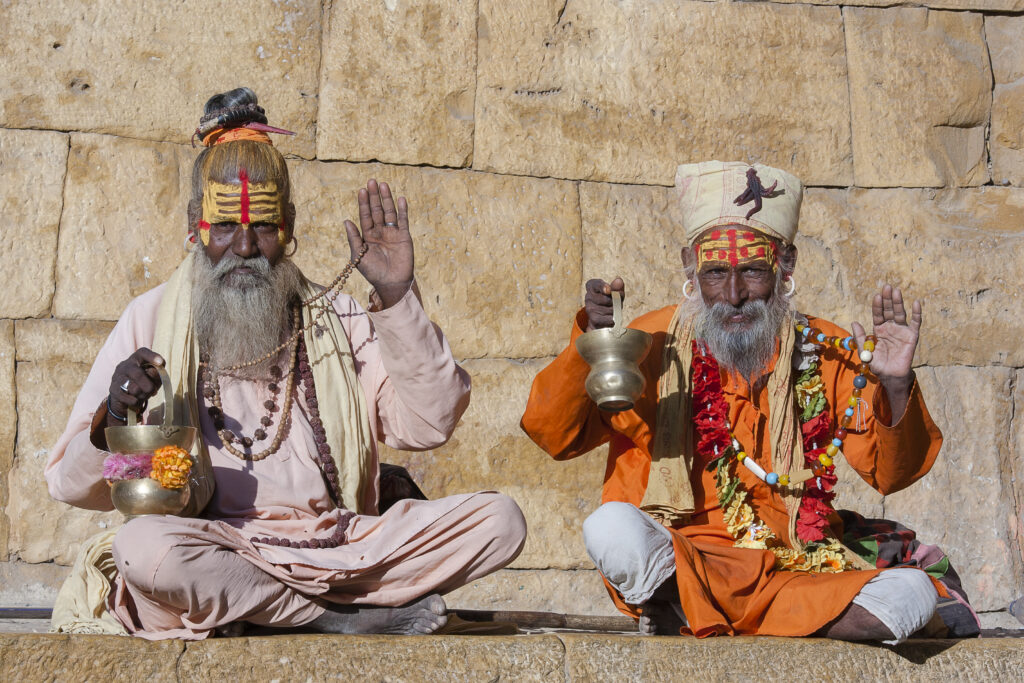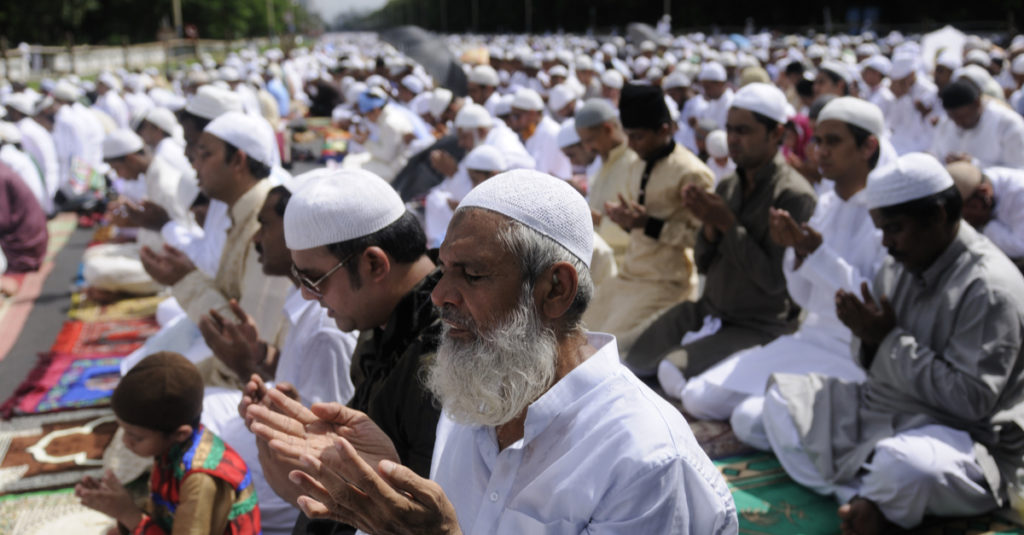5Pillars correspondent in India, Musa Farooqi, says a BJP win in the Indian national elections could entrench anti-Muslim discrimination for the foreseeable future.
Last Friday Indians started voting to choose their next parliament in the first of seven voting days that end on June 1.
Almost a billion people are eligible to cast their ballot and Prime Minister Narendra Modi is aiming for a third consecutive term in power.
As India casts its votes, many view the stakes as unprecedented. Rising religious polarisation and unemployment are dominating the debate and political analysts suggest that this could be India’s last chance to avoid reaching a political point of no return.
The Indian opposition argues that the current political regime in India threatens the independence of judiciary, undermines press freedom and diminishes other democratic institutions.
Many in India see the ongoing election as a critical moment to either stop this trend or risk further entrenchment of authoritarian practices if the current ruling regime is re-elected.
The Indian political landscape is currently dominated by two major parties – the ruling Bharatiya Janata Party (BJP) and the primary opposition, the Indian National Congress, along with influential regional parties.
Subscribe to our newsletter and stay updated on the latest news and updates from around the Muslim world!
Under the leadership of Prime Minister Narendra Modi, religious minorities, particularly Muslims, have been increasingly marginalised in Indian politics. They face systemic discrimination in their daily lives – on the streets, in the marketplaces, schools, hospitals and offices.
BJP MPs and ministers regularly mock and taunt Indian Muslims, with their messages amplified through social media platforms like WhatsApp and YouTube. Textbooks are even rewritten to instil hostility in school children towards non-Hindu citizens.
If Narendra Modi and the BJP win a third term in office, the stigmatisation of Muslims is likely to persist or even intensify. Another victory, especially with a comfortable majority in the Lok Sabha (Indian Parliament), will empower Prime Minister Modi and his party to further restrict the media, undermine the independence of civil services, the judiciary and public regulatory bodies.
On the other hand, the Congress Party, with its historical legacy of leading India to independence, is struggling to reinvent itself and regain the trust of a disillusioned electorate.
Meanwhile, the role of regional parties such as the “Samajwadi” and “Bahujan Samaj Party” cannot be overstated, as they not only influence local dynamics but also have the potential to play a significant role in forming a coalition government at the centre.
Public sentiment
Although voter sentiment in 2024, according to poll surveys, suggests that the BJP will easily win a majority in the Indian Parliament, voters still express concerns about unemployment, inflation and communal distress.
And the youth vote, comprising a significant portion of the electorate, remains unpredictable and could sway the election results in significant ways.
A Muslim voter in Kanpur, located in central-western Uttar Pradesh, highlighted joblessness as a major concern. The 60-year-old stated that none of his eight children has regular employment.
“Even Hindus are affected by a lack of jobs,” a three-wheeled taxi driver in the state capital, Chennai, told Reuters news agency, emphasising that this issue outweighs the appeal of Hindu nationalism in a predominantly Hindu nation.

In Tamil Nadu and Kerala, where the BJP has weaker support, voters seem divided on whether Modi’s strong push this time around would benefit his party. “The BJP may not increase its vote share in states like Tamil Nadu and Kerala, but nationwide, Modi will undoubtedly win again,” said S Rajagopal, a taxi driver in Chennai, the capital of Tamil Nadu, to Reuters.
In Western Uttar Pradesh, many in the Muslim community view this election as a means of protecting the constitution and preserving equality.
Shadab Khan, a driver at Aligarh Muslim University, stresses the importance of this election for safeguarding the rights granted by the constitution. Similarly, Syed Aamir, a worker in a local eatery, believes that voting is crucial for the survival of pluralism in India.
However, there is also a sense of disillusionment among some Muslim voters who feel overlooked by political parties, such as Mohammed Shiraz a student from Aligarh’s civil lines area.
“The ruling party doesn’t need our vote and the opposition assumes we have no choice but to vote for them. That is why, even though the elections are just a few days away, no party worker has approached us, let alone candidates,” Shiraz said, highlighting a perceived lack of engagement from political actors.
Hate speeches and lynching
Attacks on minorities, particularly Muslims, since Modi’s rise to power, and suppression of free speech and media are also among the issues that are likely to impact the elections.
Since the BJP rose to power, episodes of violence against minorities in the country have increased exponentially, especially against Muslims. This group represents the “other” compared to the Hindutva’s idea of a uniform India where Hinduism is the only religion.
Under Modi’s rule, hate speeches and targeting of already oppressed groups (Muslims, Dalits and Adivasis) by frenzied mobs have led to the rise of “mob lynching.” In July 2018, India’s Supreme Court issued a series of directives for preventive, remedial and punitive measures to address the lynchings.

According to Human Rights Watch, in almost all of the cases, the police initially stalled investigations, ignored procedures, or even played a complicit role in the killings and cover-up of crimes.
Government data analysed by IndiaSpend shows a 28 percent increase in communal violence incidents between 2014 and 2017. Between 2013 and 2017, there were 2,920 reported incidents of communal or caste-based violence, resulting in 389 deaths and 8,890 injuries. The most incidents occurred in Uttar Pradesh, with a 47 percent increase from 2014 to 2017.
Cow protection groups, which have emerged all over India since the BJP came to power, have targeted these communities traditionally involved in the trade. Between May 2015 and December 2018, at least 44 people, including 36 Muslims, were killed over cow-related issues.
Over the same period, around 280 people were injured in more than 100 incidents spread across 20 states. “Calls for cow protection may have started out as a way to attract Hindu votes, but it has transformed into a free pass for mobs to violently attack and kill minority group members,” said Meenakshi Ganguly, South Asia director at Human Rights Watch.
There is growing concern that in the current climate of minority harassment, and the brutal suppression of dissent by labeling any opposing view as “anti-national,” continued BJP rule for another five years could further exacerbate social tensions and deepen divisions based on religion, caste, and communal lines.
BJP’s confidence
Mohan Krishna, a spokesman for the BJP, expressed confidence that his party would sweep the elections. “The opposition is in disarray,” he told Al Jazeera. “The welfare schemes and corruption-free government led by Modi have given immense satisfaction and confidence to the people.”
Krishna also dismissed allegations of a decline in democracy under Modi as “absolutely rubbish.”
“Democracy and the constitution are upheld by the BJP, and we have proven that over the last 10 years,” he said.
So the 2024 Lok Sabha elections are shaping up to be a watershed moment in India’s political history. With democratic principles perceived to be at stake, the elections not only represent a routine exercise in electoral democracy but a referendum on the very values that have shaped India’s post-independence identity.
As the nation stands at this critical juncture, the choices made by voters in 2024 will undoubtedly shape India’s trajectory for years to come.



















